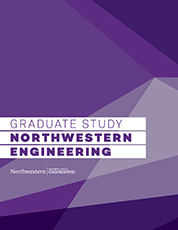Healing the Earth – with the Earth
EDI students Patrick Giavelli and Kallie Mingay spent their summers advancing a developing technology at startup Vaulterra that could help reduce the impact of climate change.
When it comes to mitigating climate change, there are lots of big ideas. Patrick Giavelli (EDI ‘24), meanwhile, is looking small. Specifically, he thinks rock dust can be a key player in the process.
Giavelli is the co-founder of the greentech startup Vaulterra, a company that leverages enhanced rock weathering (ERW) to remove atmospheric carbon dioxide and support farmers. ERW speeds up the natural breakdown of igneous rocks by crushing them into dust. The dust can be spread over large terrestrial areas to increase the absorption of carbon dioxide from the air.
The rocks necessary for this process often reach the Earth’s surface as a byproduct of mining and contain minerals that can help enrich the soil in farmers’ fields. This dust could not only help mitigate the harmful effects of carbon dioxide but also turn one industry’s waste into another’s advantage.
Giavelli launched the company in January 2023 through NUvention: Energy, a Northwestern University course that challenges students to find opportunities in greentech and simulate the launch of a startup.
Giavelli and his co-founder, Elliott Woodward (MEM '23), decided to turn their simulation into reality.
Giavelli continued working on the company while taking classes in Northwestern's Master of Science in Engineering Design Innovation (EDI) program. For his summer internship, Giavelli worked on the company full-time.
And he had help from an EDI classmate.
Kallie Mingay (EDI ‘24) routinely checked in with Giavelli during the spring to find out what was new with Vaulterra. When it was time to pursue her summer internship, Mingay knew what she wanted to do.
“Vaulterra represents one piece of a massive puzzle that is climate change solutions,” Mingay said. “The company is a blend of hard science, service design, and social impact, so there is a great opportunity to develop something meaningful and fruitful for everyone involved. I found it inspiring to work on something that helps solve big problems for our world."
Mingay’s main summer mission was to conduct primary research with some of those who might benefit from the growth of ERW – specifically, those in the agriculture industry. She also scoured scientific publications, academic and corporate-partnered studies, blogs, forums, and social media for more information about ERW to help Vaulterra’s evolving business plan.
The lessons she learned went beyond greentech itself.
“Vaulterra offered a chance to explore the world of entrepreneurship, in which I had little to no previous experience,” Mingay said. “I had a general goal to learn more about what it takes to be an entrepreneur and the intricacies of early-stage companies.”
Giavelli is becoming more intricately familiar with that life by the day. His goal for the summer was to see if he had the makeup to be an entrepreneur and if the company’s focus could find traction in the marketplace.
Giavelli’s plan now is to take the momentum from the summer and accelerate it as he heads toward his EDI graduation. He said there are a number of Northwestern students who have expressed interest in helping the company grow, and the next year will see its first in-field pilot projects.
The company would not be where it is without Giavelli's and Mingay's EDI experiences, they said.
“Early-stage startup life translates into many different things to do, and when you're operating with a small team, it is virtually impossible to do all those things well simultaneously,” Mingay said. “We grew in our ability to be flexible and intentional with our focus.”
Giavelli’s experience in starting Vaulterra while working his way through the EDI program should be instructive to prospective students looking for something similar in their careers, he said.
"What you get from EDI is what you make of it," he said. "Classes are essential to create the right professional foundations, however, leveraging EDI's and Northwestern's ecosystem was what made my experience so exciting. When I say 'leveraging the ecosystem,' I mean the possibility to reach out to any person, whether that's a professor, student, or alumnus, to ask for help and always receive incredible support, as well as having 24/7 access to state-of-the-art facilities for engineering, mentorship for entrepreneurship, and a vast network of funding opportunities."

